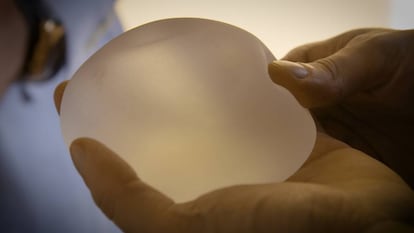A big win for consumers
If properly implemented the EU recently adopted new rules will help prevent faulty devices from ending up in patients’ bodies and harming them

Pacemakers and knee implants help consumers breathe and walk. Unfortunately, some faulty medical devices have disrupted patients’ lives in recent years. Notorious examples include the breast implants manufactured by French company PIP that were found in 2010 to be filled with cheap industrial silicone. Another example is the toxic metal hip implants that led to legs amputated. These scandals called for more robust rules around medical devices to ensure patients’ safety.
The good news is that the EU recently adopted new rules to do so. If properly implemented, such laws will help prevent faulty devices from ending up in patients’ bodies and harming them. The major positive changes include more and reliable data on the safety and effectiveness of the devices to better protect patients and those who take in part the clinical trials. In addition, national authorities will better control the organisations who approve the devices (so called ’notified bodies‘). Consumers will receive more information about the devices thanks to an ‘implant card’ detailing any precautions they need to take. A central EU portal will boost transparency by providing data about the products on the market, any serious incidents and corrective actions by manufacturers. Last but not least, the new legislation substantially improves the surveillance of devices once they are implanted in patients’ bodies and product traceability.
As a pan European consumer organisation, we repeatedly urged decision makers to strengthen the rules and to bring more transparency into the sector. Although the new rules are a big win for consumers, the EU rejected our proposal to have high-risk devices such as implants scientifically assessed by public health authorities rather than those bodies who certify the conformity of toys and radios. Instead, experts from the national governments will issue non-binding opinions on the safety of some high-risk devices selected on a random basis. This will certainly not boost safety as much as we would have wished.
We also regret the talks were endless. The gravity of the scandals which broke years ago did not push decision makers to move on faster and be more ambitious on safety. Given that the new rules will not be rolled out before 2022, patients will remain exposed to potentially harming devices for too long.
Finally, making medical devices safer goes hand in hand with compensating the victims of previous safety incidents. The new laws clarify the manufacturers’ responsibility if things go wrong but today, asking for compensation as a group of victims who suffered the same harm is only possible in some EU countries. Going to court collectively is cheaper and easier to claim damages. The lives of women affected by the PIP breast implant scandal would have been much easier had EU-wide redress existed. So it is enlightening that the EU Parliament recently urged the Commission to consider a Europe-wide collective redress system. Because consumers are stronger together, now is the time to make it a reality so consumers can claim compensation more easily over faulty medical devices, and more.
Illaria Passarani is Head of Food and Health Department at BEUC, the European Consumer Organisation
